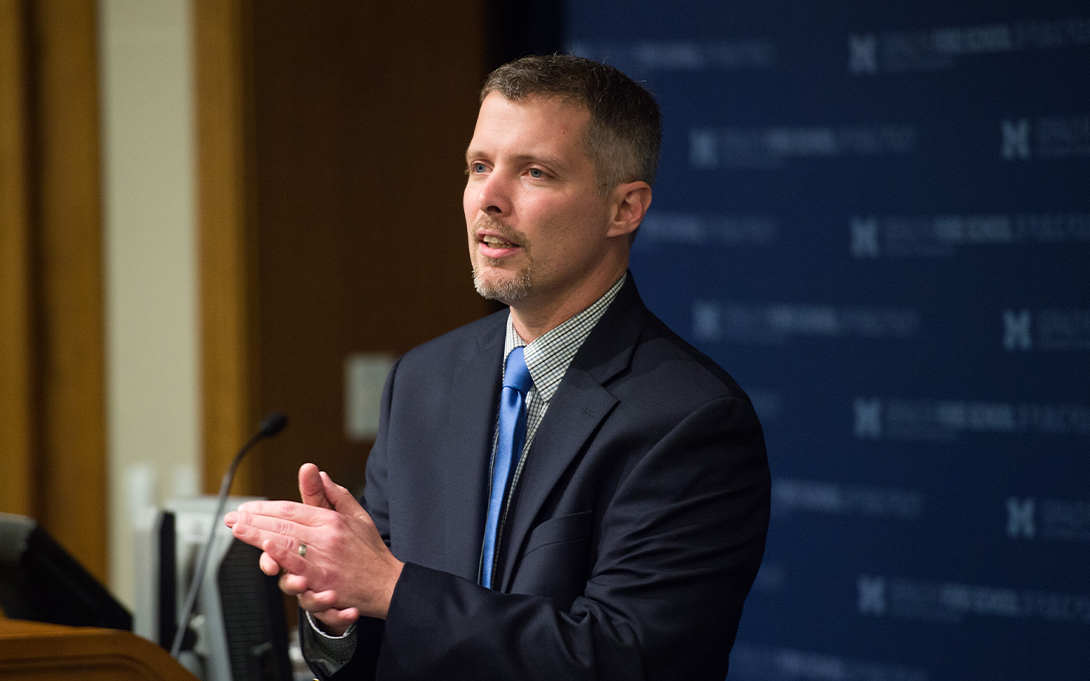
With a state-wide prohibition on gatherings greater than 50 people, events canceled, stores closed, and many residents staying home, businesses are feeling the economic effects of the COVID-19 health crisis. Professor Luke Shaefer commented on the loss of wages for hourly workers in a recent article in the Detroit Free Press, “Michigan businesses brace for challenges as coronavirus hits home.”
The local economy is contracting across sectors, including bars and restaurants, the auto industry, and many small businesses. Shaefer argues that the economic effects will disproportionately impact the poor, hourly workers, and those in the gig economy.
"Many low-earning hourly workers don't have the option to work remotely, and this unexpected change in income will exacerbate challenges for families working hard to make ends meet," Shaefer said. "We may see increases in financial hardships such as delinquent bills. We should be concerned about how all of this will affect rents and evictions for folks impacted most."
Read the full Detroit Free Press article by Phoebe Wall Howard, Susan Tompo, and Jamie Lareau, here.
H. Luke Shaefer is professor of public policy and social work at the University of Michigan. He also serves as the inaugural director of Poverty Solutions, an interdisciplinary, presidential initiative at U–M that seeks to partner community stakeholders and scholars to find new ways to prevent and alleviate poverty. Shaefer's research on poverty and social welfare policy in the United States has been published in top peer–reviewed academic journals in the fields of public policy, social work, public health, health services research, and history, and his work has been supported by the National Science Foundation and U.S. Census Bureau among other sources. He has presented his research at the White House and before numerous federal agencies, has testified before the U.S. Senate Finance Committee, and has advised a number of the nation's largest human service providers. His work has been cited in the New York Times, Washington Post, The Economist, The Atlantic, and Los Angeles Times, among other media outlets, and he has been featured on such programs as Marketplace and CNBC's Nightly Business Report. His book with Kathryn Edin, $2.00 a Day: Living on Almost Nothing in America, was named one of the 100 Notable Books of 2015 by the New York Times Book Review, and won the Hillman Prize for Book Journalism among other awards. Shaefer serves on the Commission on Community Action and Economic Opportunity for the State of Michigan. He received his B.A. in politics from Oberlin College and A.M. and Ph.D. from the University of Chicago, School of Social Service Administration.